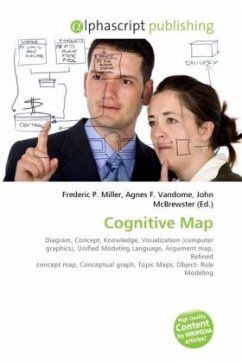Cognitive maps, mental maps, mind maps, cognitive models, or mental models are a type of mental processing composed of a series of psychological transformations by which an individual can acquire, code, store, recall, and decode information about the relative locations and attributes of phenomena in their everyday or metaphorical spatial environment. The credit of the creation of this term is given to Edward Tolman. Cognitive maps have been studied in various fields, such as psychology, education, archaeology, planning, geography, architecture, landscape architecture , urban planning and management. As a consequence, these mental models are often referred to, variously, as cognitive maps, mental maps, scripts, schemata, and frames of reference. Put more simply, cognitive maps are a method we use to construct and accumulate spatial knowledge, allowing the "mind's eye" to visualize images in order to reduce cognitive load, and enhance recall and learning of information. This type of spatial thinking can also be used as a metaphor for non-spatial tasks, where people performing non-spatial tasks involving memory and imaging use spatial knowledge to aid in processing the task.
Bitte wählen Sie Ihr Anliegen aus.
Rechnungen
Retourenschein anfordern
Bestellstatus
Storno








